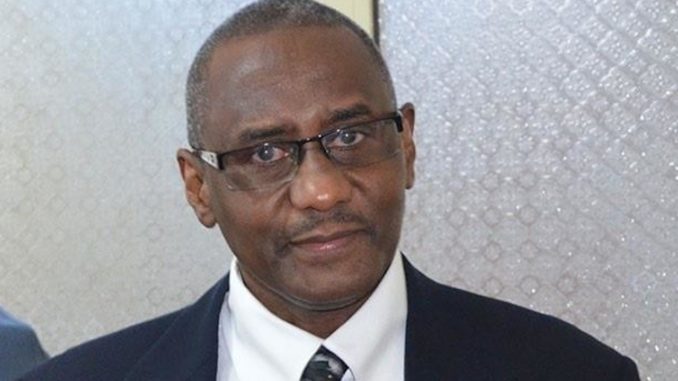
IN a baffling move, President Muhammadu Buhari demonstrated clannishness and lack of respect for procedure once more by reinstating the Executive Secretary of the National Health Insurance Scheme, Usman Yusuf. Yusuf was suspended in July 2017 following serious allegations of corruption reported to the Minister of Health, Isaac Adewole, and is being investigated by both the Economic and Financial Crimes Commission and the Independent Corrupt Practices and Other Related Offences Commission. The premature recall sits uneasily with Buhari’s commitment to openness and transparency.
Yusuf, who was appointed in 2016, allegedly cornered N919 million, being part of the contributions of the subscribers to the scheme. He claimed that some of the amount was expended on the training of the NHIS staff. He allegedly bought a Sport Utility Vehicle for N58 million, approved contracts worth about N1 billion for his cronies and filled the organisation with his relatives. The Senate also accused Yusuf of “corrupt expenditure of N292 million…without recourse to any appropriate approving authority.” Rightly, Adewole suspended him from his duty post, and empanelled a committee to investigate him, which is in accordance with extant Federal Civil Service rules.
However, claiming that the minister had no power to suspend him, Yusuf said in his response: “With due respect, sir, I am unable to comply with your directive.” He claimed that only the President had the power to suspend or sack him. But the Health Ministry insisted that the NHIS is an agency under its supervision and reaffirmed Yusuf’s suspension from office. But Yusuf refused to appear before the committee set up to investigate him. The ministerial committee’s report on the case was reportedly submitted to Buhari last September.
Instructively, both the EFCC and ICPC stepped into Yusuf’s case. But rather than follow due process, Buhari, through a letter from his Chief of Staff, Abba Kyari, reinstated Yusuf. According to a report, the President informed the minister of Yusuf’s recall, adding that he (Yusuf) had been “admonished to work harmoniously with the minister.” The minister has reportedly confirmed Yusuf’s recall: “Yes, what you have heard is true.”
The recall is shocking and outrageous, squared and cubed. It has, once again, revealed Buhari’s true colours. Unfamiliar with the nuances of modern governance and insular to the point of self-entrapment in primitive provincialism, he does not give a hoot about the consequences of some of his missteps. The to-hell-with-you attitude that played out in his notorious admonition to survivors of Fulani herdsmen massacres in Benue State to “learn to accommodate” their tormentors is on display here again in the memo asking Yusuf to “work harmoniously with the minister.”
The incident raises larger questions about Buhari’s stand on corruption and discipline: is this how to fight corruption? Is this good governance in the face of so much moral rot in the land, which Buhari vowed to fight if he was elected? Corruption is defined most comprehensively by Transparency International as an abuse of entrusted power for private gain. Have both the EFCC and the ICPC cleared Yusuf of corruption allegations? Even if they did, should the decision and memo for his recall come from the Presidency or from the supervising ministry that suspended him, in the first instance? The recall is a slap in the face for the minister. This is unequivocally awful. Henceforth, any official with connections to the “right” ethnic group or to the Presidency may feel emboldened to break the rules and defy ministerial oversight.
No doubt, this executive recklessness has left an indelible stain on Buhari’s increasingly tainted administration. Allegations that the war is selective and vindictive are gaining traction by the day. It is disconcerting to watch how this government has been lurching from shambles to debacle. Indeed, the unfolding scandals involving Abdulrasheed Maina, and the former Secretary to the Government of the Federation, Babachir Lawal, as well as the intrigues of the Attorney-General, some security chiefs and aides have tarnished Buhari’s once sparkling image.
All things considered, the government has acted irresponsibly: instead of raising the bar to reach for global best practices, the Presidency has descended to a primitive form of arbitrary governance. The promise of change from the culture of graft and abuse of due process of the Goodluck Jonathan era has dissolved into a cauldron of incompetence and exclusivity. The recklessness and impunity by the Buhari government is quite troubling. Where the interests of the commonwealth matter and standards of public service transcend greed, the parliament would have been up-in-arms; alas, the House of Representatives, impetuous and retrogressive as ever, had earlier weighed in on the side of a public official facing corruption allegations.
This disturbing trend in Buhari’s administration has to end. His provincial approach to governance is corroding the fabric of the union; he should step back and run a more inclusive and responsive government. Yusuf has no business at the NHIS until he has been cleared of all allegations by the ministerial probe panel and the anti-graft agencies. Institutions should be allowed to work free of interference; they should not be undermined by whimsical presidential indiscretions.
Buhari should reverse himself and allow due process to run its course. As for Adewole, he should make his case and politely request that Buhari rescind this untidy recall. When the man who calls you up for national service begins to undermine you, it may be the best time to quit with your integrity intact.
END

Be the first to comment